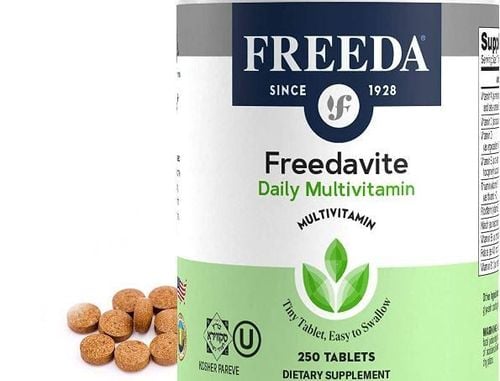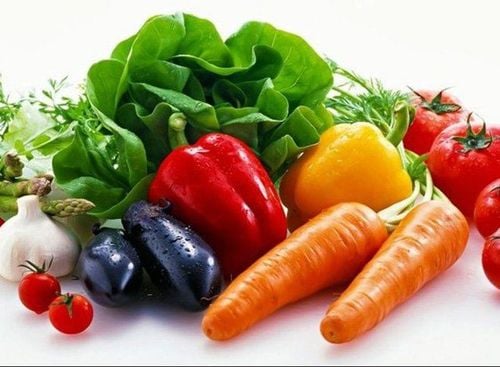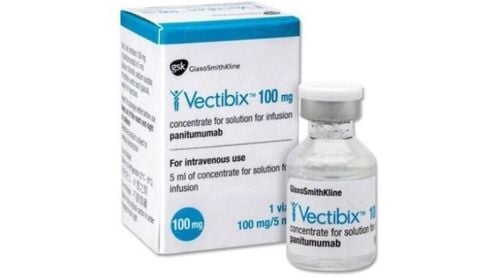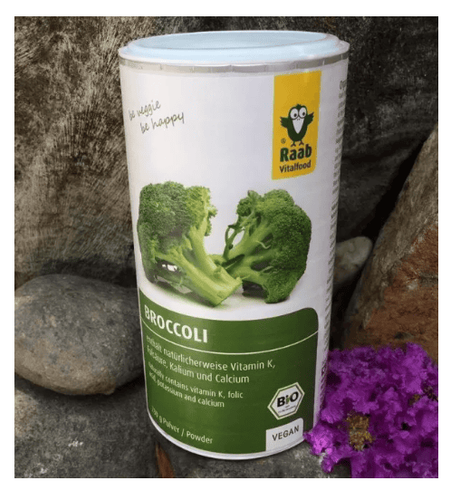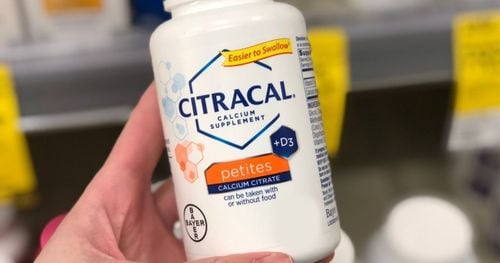This is an automatically translated article.
The article was professionally consulted by Specialist Doctor I Vo Thi Thuy Trang - Department of Medical Examination & Internal Medicine - Vinmec Da Nang International General Hospital.The intestine is the place to digest food, absorb nutrients and eliminate waste products. During the process of elimination, there will still be some residue left in the intestines. Are you wondering what diet can be used to cleanse the intestines? Or do you need to fast to cleanse your bowels? The following article will help you learn about the diet for colon cleansing.
1. The role of the large intestine in the body
The colon is an organ located in the digestive tract in the body, it is often called the large intestine or colon. When food enters the body, it is digested mainly in the stomach and small intestine, where vitamins and minerals are absorbed into the bloodstream.
Then the rest of the food moves into the colon. The colon absorbs water into the blood and bacteria in the colon help break down food in preparation for elimination from the body. A healthy colon essentially acts as the body's "cleanup" team.
2. 5 colon cleansing foods
Eating certain foods can help move waste through the colon and out of the body. If you are looking to cleanse your colon, you can include the following five foods in your daily diet:
2.1. Broccoli There are many different ways to add broccoli to your diet. Try sautéing it and sautéing it with teriyaki chicken. You can also try broccoli and cauliflower casseroles.
2. 2. Dark green leafy vegetables Eating dark green leafy vegetables like spinach, kale, and bok choy is a great way to cleanse your colon. Add greens to your dinner with black beans and spinach enchiladas. This colorful Southwest-style kale salad makes a great lunch. You can add them to your weeknight dinners with this simple Swiss chard pasta dish.
2.3. Milk You can use milk not only as a source of nutrition in the morning. Cheddar cheese soup will help you get your daily servings of vegetables and milk. You can also try homemade strawberry milk to enjoy its great taste and many health benefits.
2.4. Raspberries Raspberries are always a delicious addition to desserts. But consider adding them to a salad, such as a raspberry mozzarella salad. Or make them into a sauce and drizzle over lamb chops.
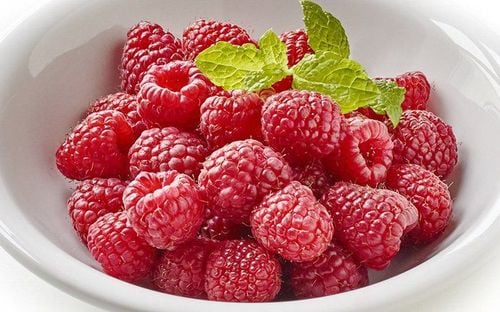
Bạn có thể ăn kiêng sạch ruột già với quả mâm xôi
2.5. Oatmeal If you find packaged instant oatmeal boring, move on to some creative oatmeal recipes online! This Elvis Oatmeal Recipe will leave you satisfied. Or swap with savory cheddar and scrambled egg oatmeal. When you prepare your oatmeal, start with the whole grain. They take longer to cook but provide more fiber.
All of these foods are high in fiber, calcium and vitamin D, they are great at keeping your digestive system working properly and preventing constipation. But if you are not used to a diet rich in fiber or calcium, eating many of these foods at once can lead to stomach upset, abdominal pain in the form of diarrhea, bloating or constipation.
If you're planning on doing a colon cleanse, add many of these foods to your diet sequentially rather than all at once.
3. What are the benefits of fiber in colon cleansing?
Experts say people should really eat between 25 and 35 grams of fiber for optimal colon health.
Fiber is a plant material that cannot be broken down by enzymes in the human digestive system. It helps to cleanse the large intestine because it stimulates regular bowel movements and helps move food through the digestive system. Experts recommend eating a little fiber at each meal to distribute your fiber intake throughout the day.
There are two types of fiber that are water-soluble and water-insoluble. Soluble fiber absorbs water during digestion, which in turn increases stool size. Foods that contain water-soluble fiber are sometimes called “raw foods” and include:
Fiber-rich fruits, such as pears, avocados, and blackberries. Vegetables Legumes Oats and oat bran Insoluble fibers do not change size during digestion, they help move food through the intestines normally. Insoluble fiber can be found in:
Fruits with edible skins or seeds Vegetables Whole grain breads, crackers and pasta Dry flour Ground corn flour Cereals Bran Oats Roll Buckwheat Brown Rice
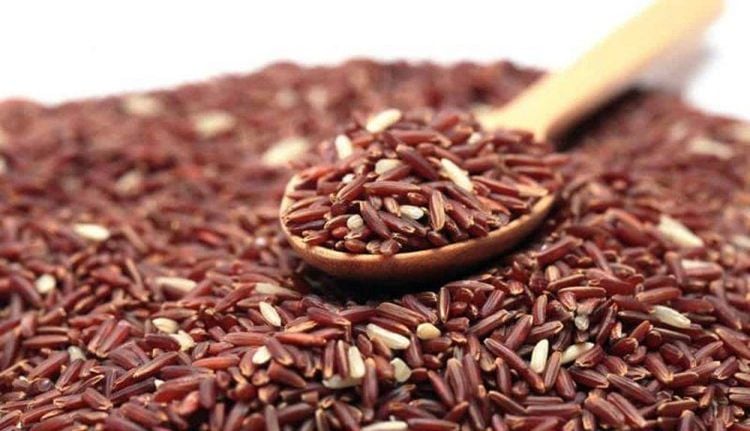
Chất xơ không hòa tantrong gạo lức có thể giúp bạn ăn kiêng sạch ruột
Studies show that calcium and vitamin D, especially vitamin D3, are helpful in preventing colon cancer. These vitamins help reduce inflammation in the colon and limit the action of certain substances that can promote colon cancer growth.
Calcium and vitamin D are found in many dark leafy vegetables and fortified dairy and cereal products.
4. How to have a healthy colon?
Tips for you to have a healthy colon are:
Diet high in fiber with lots of raw vegetables. Drink plenty of water to stay hydrated. Avoid eating too much red and processed meat, as they have been linked to colon cancer. Consider taking daily probiotics to create a more diverse bacterial environment in your colon. Diets with a wide variety of foods help make a difference in colon health. Eat a variety of foods rich in fiber, calcium, and vitamin D. These foods will help keep your colon healthy.
Please dial HOTLINE for more information or register for an appointment HERE. Download MyVinmec app to make appointments faster and to manage your bookings easily.
Reference source: healthline.com



